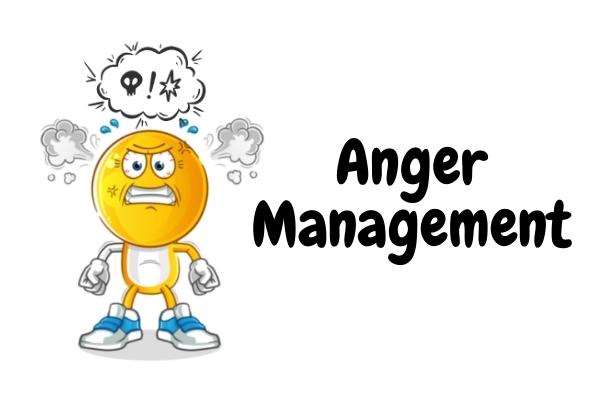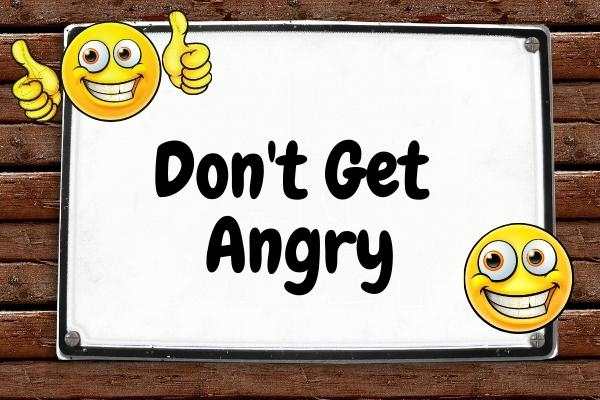“Anger is a momentary madness, so control your passion, or it will control you.” – Quintus Horatius Flaccus, Roman poet.
Anger is generally perceived as a negative emotion. Usually, we associate it with emotional outbursts, violence, hurt, and pain, but would it make an accurate description? Is it an emotion or behaviour? Is it okay to feel provoked? What are the types of anger, and how do we differentiate them? It is important to answer these questions to maintain healthy relationships with others and maintain optimal mental health.
What Is Anger?
The American Psychological Association describes it as “an emotion characterized by antagonism toward someone or something you feel has deliberately done you wrong.” It is an emotion that we feel when we believe something wrong has been done to us, or a situation has gone wrong. Therefore we do not term it a behaviour but an emotion that is expressed with certain behaviours. This emotion varies in intensity from mild irritation to intense fury and rage. Like other emotions, it is accompanied by physiological and biological changes such as an increase in blood pressure and heart rate and also an increase in the levels of energy hormones, adrenaline (the fight or flight hormone), and noradrenaline.
Is Anger an OK Emotion to Have?
Yes, anger is a natural and adaptive response to threats. It inspires strong, often aggressive, feelings and behaviours, which allow us to fight and defend ourselves when we perceive an attack. A certain amount of annoyance is needed for our survival as humans. It is an avenue to express negative feelings. It can also motivate you to make the desired change or find the solution to a problem. But it is a delicate emotion that can lead to problems if it is unbridled. One of these problems is temper issues, a continuous failure to control temper and negative behaviours associated with it.
We can all attest to experiencing a feeling of rage or annoyance at one point or the other in our lives, but whether or not our wrath is expressed, and if it is, the manner in which it is expressed varies from person to person. Let’s talk about how this works.
What Are The Types Of Anger?
The psychology of rage is complex because annoyance can be stirred up in different circumstances and for different reasons, leading to it being expressed in different ways. This gives a wide range to its typology, but it can be broadly referred to in three ways- passive, aggressive and assertive. However, there are other types that fall under these three.
Passive anger
This is also termed passive-aggressive anger. It is an avoidant form of expressing vexation where an individual tries to suppress his/her emotion and avoid addressing the root cause of their displeasure. In passiveness, despite an individual’s attempt at avoidance, certain verbal and non-verbal cues point at the person’s antagonism. For example, a person in a relationship might not confront or outrightly express their displeasure at their partner but might give one-worded replies or make snide remarks. The expression can also be in behaviours such as isolation, poor performance or self-sabotage. This is an unhealthy method of expressing vexation. Displeasure can only be suppressed for a time before it erupts.
Aggressive anger
This is the most recognized form of expression. It is sometimes not recognized until aggressiveness is associated with it. Aggressive behaviour can be expressed either by verbal or physical violence. Hitting another person during an argument is an aggressive form of expression. Aggressiveness is destructive. It can be directed at an individual, at an object, by destroying it or at oneself by self-harm.
Assertive anger
Compared to the passive and aggressive forms, assertiveness is a more healthy form of expression. It is always expressed with an aim to work through the emotion and come to a resolution. It is associated with positive behaviours such as making clear what your needs are and how to get them met without hurting others.
What Are the Causes of Anger?
As mentioned earlier, provocation can be stirred up in different situations and for different reasons. Understanding these causes can direct our reaction toward them and help us navigate our way through this emotion. These causes can be external or internal.
External causes include:
- A specific person such as a partner, co-worker or supervisor.
- An event such as a traffic jam or a cancelled flight.
- A stressful environment.
- Physical or verbal assault.
Internal causes include:
- Worrying or brooding about personal problems.
- Memories of traumatic or enraging events which can trigger feelings of resentment.
- Losing patience with work to be done.
- I feel as if one’s opinion or efforts aren’t appreciated and injustice.
- An individual can also have unique triggers based on what the person was taught to expect from oneself, others and the world around them. For example, if you weren’t taught how to express displeasure appropriately, your frustrations might build up and make you feel miserable until you explode in an angry outburst.
- From a mental health perspective, inherited tendencies, brain chemistry or underlying medical conditions also play a role in a person’s tendency toward angry outbursts.
How To Manage Anger?
Dealing with annoyance can involve both conscious and unconscious processes for individuals. The aim of anger management is to decrease emotional feelings and physiological arousal caused by outrage, thereby allowing individuals to have control over their behavior. The following steps provide a radical approach to anger management.
– Identify your warning signs: everyone has their own personal signs that they exhibit as vexation builds up. A sign such as hyperventilation is commonly present due to the ‘fight or flight response of the body to perceived threats. Early identification of these signs helps in controlling behaviour.
– Identify and avoid negative thought patterns that trigger you: negative thought processes such as overgeneralization, blaming and hasty conclusions are associated with vexation. Avoiding them enables an individual to confront the situation in a healthy manner towards resolution.
– Avoid people, places or situations that could trigger you: triggers can be associated with previous experiences. For example, a person could be triggered in a particular location if they have been bullied there in the past. Triggers are unique to each person. Identifying and avoiding them is an effective way to keep emotions in check.
– Wait till you’re calm before expressing your displeasure: the emotion build up with vexation can cloud one’s thinking and lead to impulsive behaviours. When you’re feeling offended, wait till you have your emotions in control before expressing your discomfort.
– Employ a problem-solving approach: provocation may be caused by real problems in one’s life which have no immediate solution. After identifying a problem, create a plan and goals for solving it, take action and consistently work towards its resolution. The improvements that come with action reduce the chances of getting displeased over the problem.
– Use relaxation techniques: tools such as deep breathing, relaxing imagery, yoga exercises, and music therapy can help calm down feelings of displeasure.
– Healthy communication: sometimes resentment can be due to miscommunication. Employ good communication skills, such as active listening, feedback, empathy and clarity. Also, avoid defensiveness in receiving information and assertively clarify misconceptions without resorting to aggressiveness.
– Seek professional therapy and counselling: Anger management counselling is advisable when you feel your rage is out of control and has a significant effect on your daily life, relationships or health. During therapy, a psychologist or certified mental health practitioner helps you navigate your emotions and develop personal coping strategies for anger management.
Read our Blog: Anger Management for Children: What Every Parent Needs to Know
Conclusion
We have seen that temper is a natural and normal emotion to feel. It only becomes a source of concern when left uncurbed; it can cause significant problems in the mental and physical health of an individual. Poor management of this emotion can lead to health conditions such as chronic headaches, insomnia, anxiety disorders, depression, seasonal affective disorder and others. Understanding how annoyance builds up, its causes, and taking action towards its management using the approach explained above is a great step in taking control and living an emotionally healthy life.
References:
Healthline: Therapy That Works for Anger
Choosing Therapy: 12 Types of Anger












